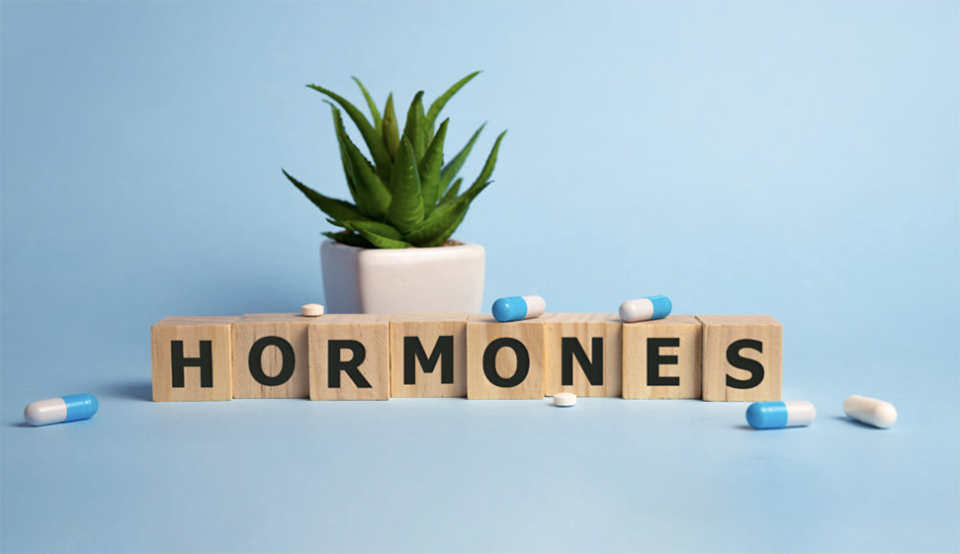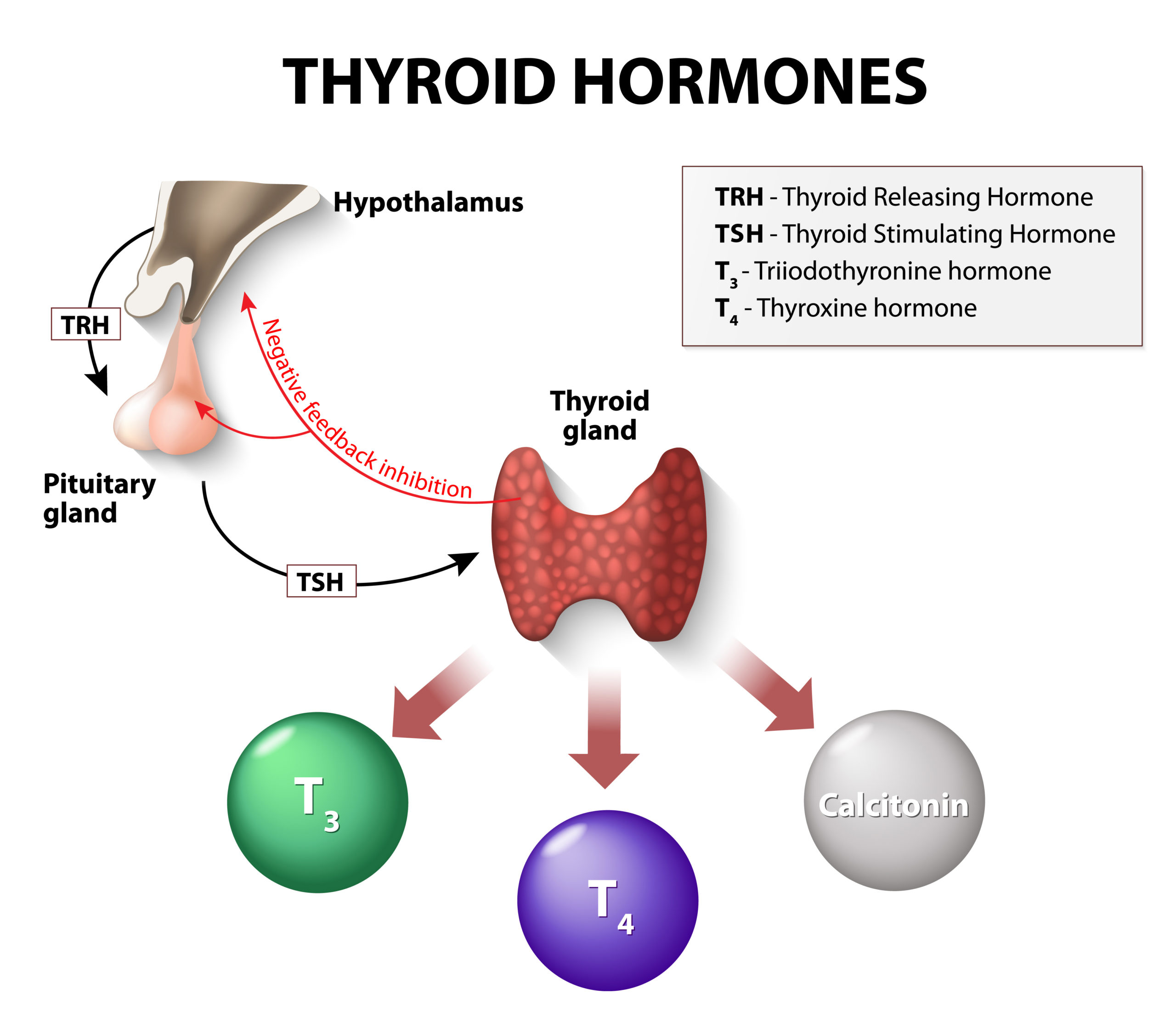
The Hormone Problem
As women approach midlife, the body produces less estrogen, progesterone, thyroid, and other vital hormones. This can leave you with a wide variety of complaints, including:
- hot flashes
- mood swings
- low sex drive
- depression
- decreased memory
- poor sleep
- dry skin
- vaginal dryness
These conditions can severely impact your quality of life — yet they don’t have to be a part of growing older. Bioidentical Hormone Replacement Therapy can replace the diminished natural chemicals in your body.
What is Bioidentical Hormone Replacement Therapy (BHRT)?
BHRT can reverse symptoms caused by hormone deficiencies and make you feel younger, healthier, and happier.
Bioidentical hormones match our body’s natural chemicals because they come from nutrient-rich plants. This differs from synthetic hormone treatments that are difficult for our bodies to metabolize, can promote cancer growth, and have other harmful side effects.
Because bioidentical hormones are plant-based, they provide a host of health benefits proven to slow down diseases such as Alzheimer’s, stroke, heart attack, osteoporosis, osteoarthritis, colon cancer… even periodontal disease!
Bioidentical Hormone Replacement Therapy just makes good sense!
Hormones and Their Function

ESTROGEN
Although present in both men and women, estrogen is primarily a female hormone secreted by the ovaries.
Estrogen can protect women from multiple health issues, including:
- heart disease
- stroke
- osteoporosis/osteopenia
- Alzheimer’s disease
- memory disorders
- vaginal dryness
- urinary incontinence
Estrogen improves balance by improving the visual-somatosensory system within the central nervous system. It’s essential for proper menstrual function (in tandem with progesterone) and helps prevent menopause symptoms.
Estrogen deficiencies lead to sagging breast tissue and skin, increased facial wrinkles, fatigue, depression, mood swings, and decreased libido.
PROGESTERONE
Although progesterone is found in both men and women, it is mostly a female hormone. The body produces progesterone in four areas: ovaries, corpus luteum, adrenal glands, and placenta in pregnant women.

Additionally, progesterone is neuroprotective and can be used in ERs after head trauma to treat brain injury. Both men and women have progesterone receptors in every cell of their bodies. Science has yet to discover all that progesterone does for us. We know, however, that it is tremendously helpful for better sleep and anxiety control in women.
The origin of this word comes from the Latin pro- (“for”) and –gesterone (“gestation”). This clearly shows the importance of this hormone in child-bearing age women. Women who are chronically low in progesterone have more miscarriages and more uterine fibroid tumors.
TESTOSTERONE
Testosterone is produced by the adrenal glands, testicles, and ovaries and is a vital hormone for everyone. It contributes to:
- muscle mass
- strength
- bone density
- endurance
- decreased fat
- increased exercise tolerance
- decreased cholesterol
- improved skin tone
- enhancement of well-being
- sex drive
In men, testosterone protects against cardiovascular disease, hypertension, diabetes, and arthritis. It also improves healing capacity and muscle repair. It prolongs the quality of life by decreasing age-related diseases, including Alzheimer’s disease.
Testosterone is extremely important in women for body fat reduction, libido, endurance, bone protection, and energy.
GROWTH HORMONE (Human Growth Hormone — HGH)

Growth hormone helps with many bodily functions, including:
- tissue repair
- cell rejuvenation
- bone and muscle strength
- brain function
- enzyme production
- the integrity of hair, nails, and skin
- lipolysis (fat breakdown)
Signs of aging are significantly correlated to a deficiency in growth hormone. These signs include:
- body composition shifts from lean muscle mass and high energy levels to increased fat/body weight and low energy levels
- decreased bone mineralization (slowing of bone growth/repair)
- waning vitality
- increased cardiovascular disease
- increased mortality.
Decreased growth hormone can also cause impaired physical performance, poor sleep, and diminished social interaction. Growth hormone supplementation can create significant improvements in energy and sense of well-being, as well as decrease muscle pain, body fat, and signs of aging and wrinkles.
MELATONIN
The pineal gland produces melatonin, which acts as a neurotransmitter to regulate the body’s circadian rhythm. Melatonin is vital for deep sleep, as this is when the cells rejuvenate and repair. These deep sleep stages produce natural “CD4” killer cells, vital to a strong and healthy immune system. These cells also help produce essential growth hormones. Deep sleep also helps elevate energy and mood.
Melatonin has powerful antioxidant effects linked to disease prevention. A deficiency of melatonin can cause irritability, poor sleep, jet lag, hypersensitivity, and premature aging. Studies have also linked melatonin to reduced breast cancer cell development.
THYROID HORMONE

Thyroid hormone is a massive contributor to energy levels and the body’s ability to maintain a constant temperature. Some of the things the thyroid hormone does include:
- helps remove toxic metals and chemicals
- increases fat breakdown
- improves hair growth on the scalp and eyebrows
- reduces body weight
- helps prevent cognitive deterioration
This hormone also serves as the master hormone, which gives it the ability to reduce cholesterol. Although infrequently used for this purpose, it may be the safest and most beneficial cholesterol-reducing agent.
Thyroid Hormone is critical for fertility in women. Many women who go through expensive fertility treatments may simply need thyroid hormone replacement.
Think of the Thyroid Hormone as the overseer of the body, telling all the other organs to get to work!
DHEA
Short for dehydroepiandrosterone, DHEA is one of the most abundant hormones in the body. It also functions as a precursor hormone, taking part in a chemical reaction that produces other hormones.
Mainly secreted by the adrenal glands, DHEA can also be secreted from the skin and brain. DHEA is an essential component in many of the body’s metabolic and physiologic functions, including:
- regulating hormone balance
- building the immune system
- reversing the effects of stress
- making sex hormones
- increasing short-term memory
- maintaining levels of well-being
DHEA promotes an anabolic (protein-building) state, which increases lipolysis (the breakdown of fat). It also increases strength, energy, and libido. Several studies have linked it to reduced cardiovascular risk and restored sexual vitality.
PREGNENOLONE
Pregnenolone serves as one of the major precursor hormones in our bodies. It’s a memory enhancement hormone produced in the brain. Pregnenolone is important to cellular repair, particularly in the brain and nervous tissue. It also protects against neuronal injury and aids cerebral function.
Pregnenolone is also the main hormone used by the adrenal glands to make cortisol, DHEA, progesterone, aldosterone, testosterone, and estrogen.
Synthetic, Natural, and Bioidentical Hormones: What’s the Difference?

Most believe synthetic is bad and natural is good, and in most situations, this is true. However, the most important issue is whether the hormone is 100% human bioidentical. The source of the hormone, whether natural or synthetic, is not as important as making sure the compound exactly matches what the body produces naturally.
When a compound is bioidentical, the body can easily use it to heal itself. The problem with most synthetics is that only synthetic hormones can be patented. Because of this, pharmaceutical companies created synthetic hormones that attempt to mimic natural hormone function.
However, these synthetics are structurally and functionally different from the natural hormones they are attempting to replace. They can help the initial symptoms but often produce negative side effects such as bloating, headaches, fatigue, weight gain, increased clotting, heart disease, and possibly cancer.
Most natural hormones, by contrast, are structurally identical to those our bodies would normally produce. And natural, bioidentical hormones, instead of causing disease, can actually prevent disease and help maintain a healthy body.
Over the past few years, some pharmaceutical companies have caught on to the idea of “natural” hormone replacement and now patent the specific cream, gel, patch, or spray the hormone comes in. However, these products are expensive if you do not have insurance. It’s often much cheaper to purchase these products from a reliable compounding pharmacy.
Learn More about How Bioidentical Hormone Replacement Therapy Can Help You Live a Healthier, More Youthful Life!

We will work with you using proven, scientific-based technology in a warm and compassionate environment. We are here to help you restore your health so that you can live a life of vitality and wellness.
Please contact our New Patient Coordinator for a free phone consultation. She can answer any questions or concerns that you may have and give you additional information about our providers, our protocols and fees, what is covered by insurance and what is not, and any other details you may need.
She can also get you booked for your first appointments if you decide we are a good fit for you. There are no obligations to book an appointment.
Please call 214-740-4703 to learn more, or complete the form below, and we will contact you. We would love to hear from you!